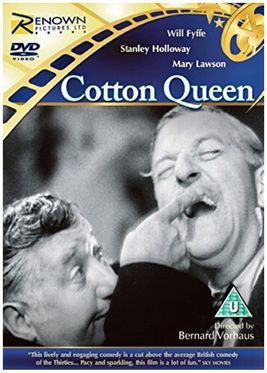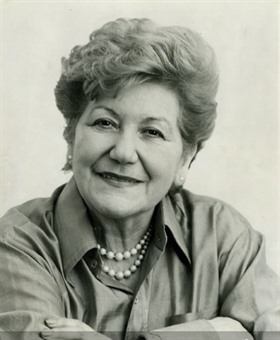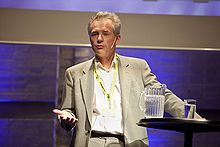
A documentary film or documentary is a non-fictional motion picture intended to "document reality, primarily for instruction, education or maintaining a historical record". Bill Nichols has characterized the documentary in terms of "a filmmaking practice, a cinematic tradition, and mode of audience reception [that remains] a practice without clear boundaries".

The Cinematograph Films Act 1927 was an act of the UK Parliament designed to stimulate the declining British film industry. It received royal assent on 22 December 1927 and came into force on 1 April 1928.
Beyond Citizen Kane is a 1993 British documentary film directed by Simon Hartog, produced by John Ellis, and first broadcast on Channel 4. It details the dominant position of the Globo media group, the largest in Brazil, and discusses the group's influence, power, and political connections. Globo's president and founder Roberto Marinho was criticised and compared to the fictional newspaper tycoon Charles Foster Kane, created by Orson Welles for the 1941 film Citizen Kane. According to the documentary, Marinho's media group engages in manipulation of news to influence public opinion.

James Chapman is Professor of Film Studies at the University of Leicester. He has written several books on the history of British popular culture, including work on cinema, television and comics.
Television studies is an academic discipline that deals with critical approaches to television. Usually, it is distinguished from mass communication research, which tends to approach the topic from a social sciences perspective. Defining the field is problematic; some institutions and syllabuses do not distinguish it from media studies or classify it as a subfield of popular culture studies.

Paul Rotha was a British documentary film-maker, film historian and critic.
Simon Hartog was a British filmmaker who worked as both director and producer. He helped develop an independent film industry in the United Kingdom (UK), founding London Film-Makers' Co-op in the 1960s, key to the avant-garde; working on independent documentaries, and founding the production company, Large Door Ltd. Through the Independent Filmmakers' Association, he campaigned for an independent Channel 4. Through his company, Hartog produced a series on world cinema, Visions, that ran on the channel for three years.
Mark Connelly is a professor and Head of the School of History, at the University of Kent in Canterbury, where he is both a military historian, and the Reuters Lecturer in Media History. Connelly specialises in the 19th Century and First World War.
Nicholas J. Cull is a historian and professor in the Master's in Public Diplomacy program at the Annenberg School for Communication and Journalism at the University of Southern California. He was the founding director of this program and ran it from 2005 to 2019.

Ebrahim Hatamikia is an Iranian film director, screenwriter, cinematographer and actor. Hatamikia is a prolific proponent of films depicting the Iran–Iraq War's impact on Iran. His films are considered some of the best ever made in the genre of Iranian war cinema and most notable for their attention to social changes brought about by the war. Also, he is best known for his explorations of the trauma by the war; both on returning soldiers and those who await them, unable to mourn effectively without knowing the fate of their loved ones.

An ethnographic film is a non-fiction film, often similar to a documentary film, historically shot by Western filmmakers and dealing with non-Western people, and sometimes associated with anthropology. Definitions of the term are not definitive. Some academics claim it is more documentary, less anthropology, while others think it rests somewhere between the fields of anthropology and documentary films.

Cotton Queen, also known as Crying Out Loud, is a 1937 British comedy film directed by Bernard Vorhaus, and starring Stanley Holloway, Will Fyffe, and Mary Lawson.

Documentary News Letter was a magazine about documentary film founded by filmmaker John Grierson. The publication was developed as the wartime successor to World Film News, which ceased publication in 1938, and sought to promote a "documentary approach to everyday living." It published its first edition in January 1940, with an editorial board that consisted of Grierson, Paul Rotha, Basil Wright, Arthur Elton and Thomas Baird.
The Ever Open Door is a 1920 British silent drama film directed by Fred Goodwins and starring Hayford Hobbs, Daphne Glenne and Margaret Hope. It was based on the play The Ever Open Door by George R. Sims, a leading Victorian writer of stage melodramas. It was one of a number of Sim's plays to be adapted for cinema during the Silent era.

Nancy Nevinson was a British actress.
This is a list of reference works on documentary films.

Stephen Bourne is a British writer, film and social historian specialising in Black heritage and gay culture.
Karen Elizabeth Boyle, is Professor of Feminist Media Studies at the University of Strathclyde, previously she was professor of Feminist Studies at the University of Stirling, and before that was a lecturer in film and television studies at the University of Glasgow. She has published a number of articles on feminism, violence and pornography.
Stella Bruzzi, FBA is an Italian-born British scholar of film and media studies and currently Executive Dean of Arts and Humanities at University College London.










